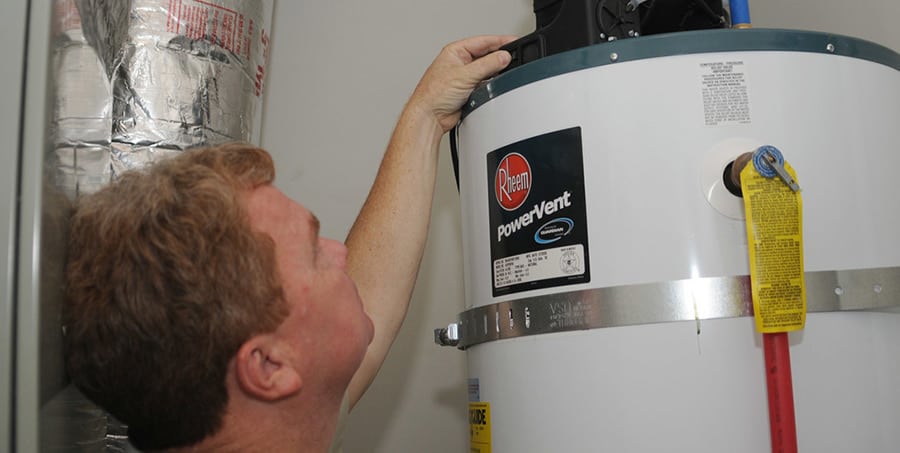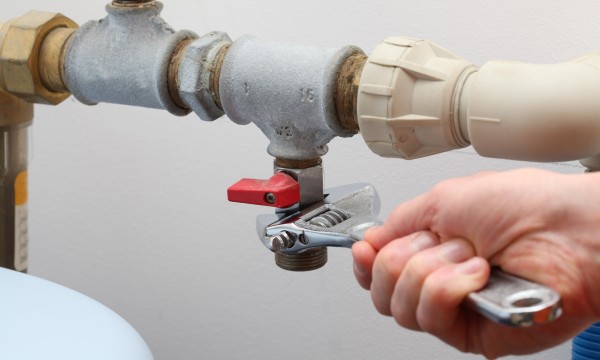How do you actually feel in relation to Is Your Water Heater Leaking??

A hot water heater is just one of the most important standard appliances that can be found in a residence. With hot water heater, you do not require to experience the stress and anxiety of home heating water manually whenever there is a requirement to wash, wash, or the meals. There is always a possibility that your water heater would certainly act up as with many mechanical tools.
It is necessary to note any type of little malfunction as well as tackle it quickly prior to things leave hand. The majority of times, your water heater begins to malfunction when there is a build-up of sediments as a result of continual use. As a preventative measure, regular flushing of your hot water heater is recommended to stop debris buildup as well as protect against useful failure.
Typical water heater emergencies as well as just how to handle them
Insufficient warm water
Taking care of a not enough supply of warm water can be irritating. It may be that the water heater can not sustain the hot water demand for your apartment or condo. To manage this problem, you might try to readjust your heating system's temperature level dial and also wait for a few minutes. If the trouble continues, you can request the help of a specialist plumber. You can update your water heating unit to one with a larger capability.
Varying water temperature level.
Your hot water heater could start generating water of various temperature levels typically ice hot or cool hot. In this circumstance, the first thing you do is to make sure that the temperature level is set to the desired degree. If after doing this, the water temperature level maintains altering during showers or other tasks, you may have a damaged thermostat. There could be a demand to change either the heating or the thermostat device of your water heater.
Dripping hot water heater storage tank.
In this circumstance, you should transform off your water heating system, enable it to cool down, as well as very carefully look for the source of the problem. At times, all you need to do is to tighten up a few screws or pipeline connections in instances of minor leaks. If this does not work and also the leak lingers, you might require to employ the solutions of a service technician for an ideal substitute.
Stained or smelly water
When this takes place, you require to recognize if the concern is from the tank or the water source. If there is no funny odor when you run chilly water, then you are specific that it is your water heating unit that is defective. The stinky water can be caused by rust or the accumulation of bacteria or sediments in the water heater tank.
Conclusion
Some homeowners ignore little warning and minor faults in their hot water heater device. This just brings about more damages as well as a possible complete breakdown of your device. You need to manage your water heater mistakes as soon as they come near prevent more costs and unneeded emergency difficulties.
With water heating units, you do not require to go with the stress and anxiety of home heating water by hand every time there is a need to take a bath, do the laundry, or the dishes. It might be that the water heating unit can not sustain the hot water demand for your home. Your water heating system might start creating water of different temperatures generally ice scalding or cold warm. If there is no funny odor when you run cool water, after that you are certain that it is your water heating system that is malfunctioning. The stinky water can be created by corrosion or the accumulation of germs or sediments in the water heating system storage tank.
What’s Wrong With My Water Heater?
Not Enough Hot Water
You probably encounter this problem in the shower or while washing dishes. As you run your water, you’ll notice it starting to cool down. Turning up the hot faucet may not work, or it may only heat the water for a short period. Your hot water probably comes back and works normally one or two hours after you use it up.
If you’ve never had enough hot water, your heater may be too small for your home. If you haven’t had a problem until recently, there’s probably something’s wrong with your heater’s thermostat. Try adjusting it to see if you can feel a difference. Even if the thermostat’s working, the heating element itself could have burnt out. It’s also possible that a clog has restricted water flow into or out of the heater. Luckily, none of these problems are hard to fix, as long as you call them in early.
Water is Too Hot
Unregulated water heaters can make water dangerously hot. You probably have this problem if you’ve been scalded by your hot water. It’s also a likely culprit if you have trouble getting your faucets to produce a comfortable temperature. This problem is easy to fix, but it can also be a serious health hazard if you don’t address it. If you think your water is too hot, don’t doubt yourself; look into it!
Start by finding your heater’s thermostat and mark its position with a pen. Turn the thermostat to a cooler setting. Wait a couple hours to see if the problem is solved. If it isn’t, listen for boiling in the tank and look for water that comes out of the faucet steaming. In those cases, your temperature-pressure relief valve may be malfunctioning. This is a serious problem that can be dangerous, so you should have it looked at right away.
Discolored or Smelly Water
If all your water looks rusty or smells weird, there’s probably a problem with your pipes. If only your hot water looks weird, however, your water heater is probably at fault. Hot water discoloration comes in several varieties. It could look orange or brown-ish, taste rusty, or feel grainy. It could also look yellow or green-ish and taste gross or feel slimy. Either way, it’s a sign that there’s something wrong with your water heater’s tank.
Usually, hot water discoloration means sediment has built up in your tank. Sediment is made up of hardened minerals that accumulate on the inside of the water heater’s walls. When enough sediment builds up, it causes all kinds of problems–including your discolored water. Try flushing your water heater tank to clean out built up sediment. If the water still tastes rusty, your tank’s rust-preventing anode rod may have worn out. A pro can replace an anode rod easily, but without one, your tank could rust beyond repair relatively quickly.
Leaking
Water heaters can leak from several different places, and each leak means something different. If the leak is coming from a pipe above the heater, it’s possible the tank itself hasn’t been compromised. The cold inlet, hot outlet, and T&P pipes could all leak from above. Try tightening the problematic valve. If that doesn’t work, then the valve or pipe will have to be replaced.
If the leak is coming from the bottom of the tank, it’s important to determine exactly where it is. The leak could be coming out of the drain valve or your T&P valve below the tank. You can replace those valves and preserve the tank itself. If you notice the water tank itself leaking, however, that probably means it’s corroded beyond the point-of-no-return. Leaking water heaters are a big deal, so you should get yours replaced ASAP.
https://www.punctualplumberdallas.com/blog/whats-wrong-water-heater/

I ran across that piece of writing on Is Your Water Heater Leaking? while doing a lookup on the search engines. Make sure you set aside a second to promote this post if you enjoyed it. Many thanks for your time. Visit again soon.
Best decision? Call us.